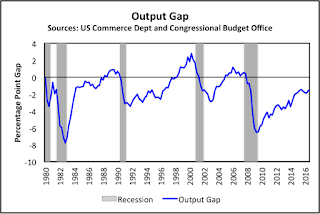The old joke among international macroeconomists was that the acronym IMF stood not just for the International Monetary Fund, but for “It’s Mostly Fiscal”. It’s Mostly Fiscal is making a forceful comeback — including at the fund — which is all the more impressive for being flipped back to front. The “new view” of fiscal policy, recently outlined in particular by White House economist Jason Furman, is that current economic ailments are largely due to excessively tight government budgets, and that the solution is more public borrowing and greater budget deficits. That also contrasts markedly with the pre-crisis consensus for normal times, which was that macroeconomic stabilisation should be handled by monetary, not fiscal policy. This is a big change Martin Sandbu FT 7 November 2016 Davies, New fiscal theory ?


